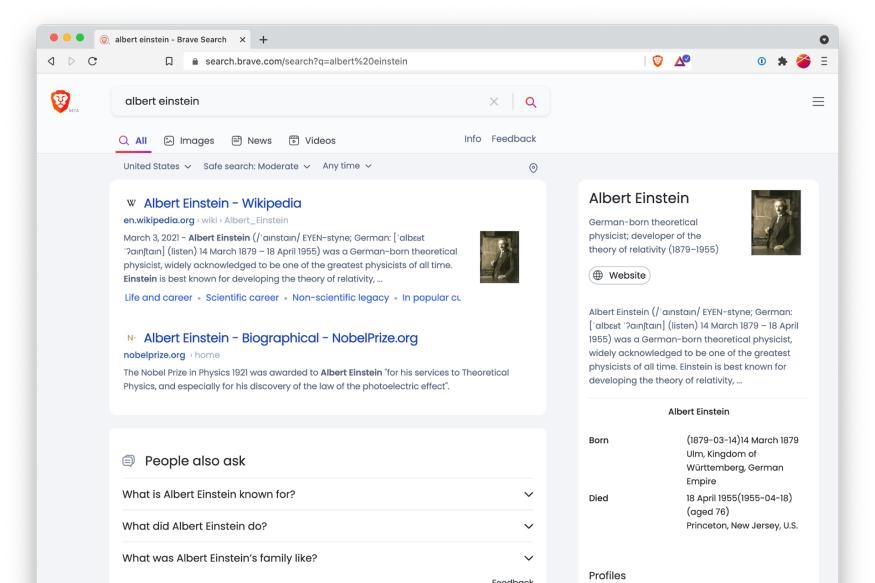Brave’s privacy-focused search engine can now find images and videos
Brave’s privacy-first search engine is now built in to its browser
Brave is very confident in its privacy-centric search engine — so much so that it’s giving Google the boot. As of today (October 19th), Brave will use the engine as its browser’s default search tool, replacing Google in the US, UK and Canada. It’ll also supplant DuckDuckGo in Germany and Qwant in France, with more countries seeing the switch in the “next several months.”
Your browser will keep its existing search engine settings, and you can always pick Google or another competitor if you’re so inclined. The change in defaults is available across desktop releases as well as Android and iOS.

Brave Search is effectively billed as the anti-Google engine. It doesn’t track you, your search history or what you’ve clicked. While its independent index won’t necessarily be robust as Google’s, Brave is betting that the default position will significantly boost adoption.
You can help improve the results, too. Brave has launched a Web Discovery Project that lets volunteers contribute data to improve Brave Search’s overall quality. The feature is anonymous and makes the data “unlinkable,” rendering it useless to ad customers or hackers. It runs automatically as you browse. The opt-in nature will limit WDP’s usefulness, but Brave is clearly hoping to find enough participants that it narrows gaps with heavyweight rivals.

(10)



